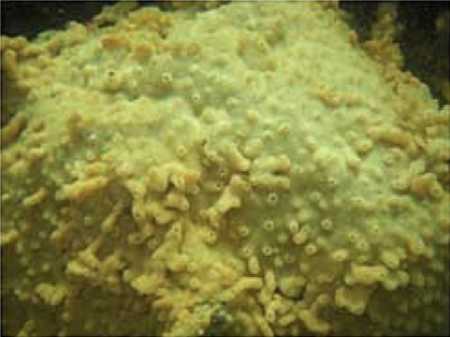The Alaska House has voted 26-7 in favor of a bill that aims to fight invasive species in Alaska’s waters.
House Bill 38, brought by Rep. Paul Seaton, R-Homer, allows the Alaska Department of Fish and Game to combat sudden outbreaks of invasive species that could endanger Alaska’s native wildlife.
Speaking on the House floor, he discussed Didemnum vexillum, better known as “rock vomit,” which has infested a small-boat harbor in Sitka.
Seaton said that if rock vomit spreads, it could choke Sitka’s famed herring roe harvests.
“We need to get ahead of it by planning, and this bill prioritizes invasive species over other management goals,” he said.
HB 38, if also approved by the Alaska Senate and signed into law by Gov. Bill Walker, would allow the Alaska Department of Fish and Game the authority to declare an invasive species emergency and shut down fishing to allow it time to clear the species from a particular area before fishing boats motor through the outbreak and spread it.
The bill also creates an emergency fund that allows ADF&G to pay for cleanup operations when the Legislature isn’t in session to authorize the extra expense.
Seaton said the bill isn’t designed to combat invasive species that are already endemic; it’s intended to fight “the first outbreak.”
Rep. Tammie Wilson, R-North Pole, spoke against the bill, saying she is concerned that if chemicals are used to fight an outbreak, they could have an impact that lasts much longer than the outbreak does.
“If we really want to take care of invasive species and do it right, we need to have a process,” she said.
Drinking water wells in North Pole have been under increased scrutiny since it was discovered that runoff from a nearby oil refinery contaminated them with sulfolane, a chemical whose long-term exposure effects are unknown.
In the Senate, lawmakers took up Senate Bill 124 and House Bill 93, passing each unanimously. SB 124 extends the Alaska Commission on Aging through 2024. HB 93, approved 36-0 in the House last year, allows paroled prisoners to travel within Alaska to seek work or as a condition of work (if hired as a truck driver, in one example).
The Senate approved an amended version of the bill 19-0, with one senator absent.
HB 93 will return to the House, where lawmakers will be asked to concur with the Senate’s changes. If Representatives approve, the bill will then go to the desk of Gov. Walker.

